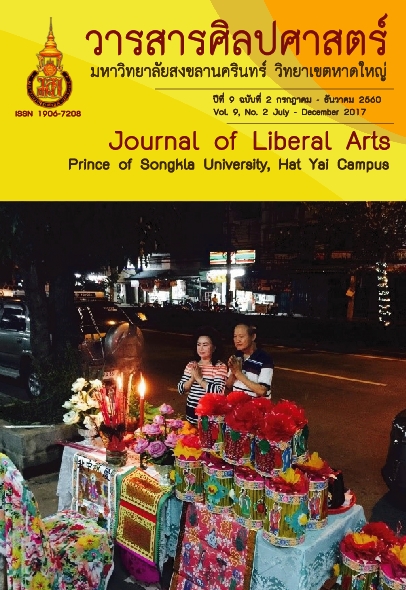English language learning strategies: A comparison between Muslim and Non-Muslim high school students
Keywords:
English Language learning strategies (ELLS), high achievers, low achievers, Muslim, non-MuslimAbstract
This study aimed to compare English language learning strategies (ELLSs) use between and within two different mother tongue groups: Muslims whose mother tongue was Melayu and non-Muslims whose mother tongue was Thai. Using purposive sampling, the subjects comprised 424 Mattayomsuksa 4 students; 209 high and 101 low achiever Muslims, 59 high and 55 low achiever non-Muslims using Ordinary National Educational Test (O-NET) test scores of English. To access ELLSs, the study employed two instruments: Strategy Inventory for Language Learning for non-native speaker strategy assessment (SILL version 7.0) and group interviews. The results showed that these learners were moderate ELLSs users and the high achievers used more ELLSs than their counterparts. Both the Muslim and the non-Muslim high achievers used indirect strategies more than direct ones and no significant differences were found. Both used metacognitive the most; however, memory and social strategies were used significantly more by the Muslim than the non-Muslim high achievers. Similar results were found when comparing Muslim and non-Muslim low achievers except that the Muslim low achievers used metacognitive strategies more significantly. It can be concluded that most participants tended to develop their English language learning through indirect strategies (metacognitive, affective and social strategies) and to avoid complicated strategies. Muslim students preferred rote learning through memorization to acquire English, whereas the non-Muslims applied social strategies.
Downloads
Published
How to Cite
Issue
Section
License

This work is licensed under a Creative Commons Attribution-NonCommercial-NoDerivatives 4.0 International License.
The authors retain the copyright to their article but the Journal of Liberal Arts, Prince of Songkla University reserves the exclusive rights to first publication.






